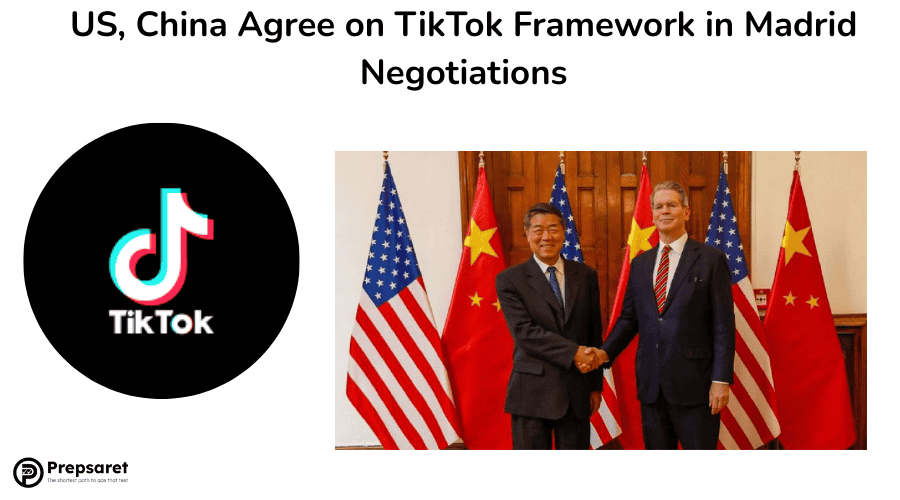The United States and China have reached a preliminary agreement regarding the popular short-video platform TikTok, following a series of discussions on tariffs and broader economic policies in Madrid, U.S. Treasury Secretary Scott Bessent confirmed on Monday.
The deal comes after weeks of intense negotiations over the app’s operations and ownership.
The agreement would enable TikTok to continue operating in the U.S., avoiding a potential shutdown that could have taken effect as early as September 17 if the company did not transition to U.S. ownership.
U.S. Trade Representative Jamieson Greer noted that there might be a brief extension beyond the September 17 deadline to allow TikTok to finalize the framework arrangement.
“It would not have been extended without a framework,” Bessent stated, underscoring the importance of the deal. Bessent also revealed that President Donald Trump and Chinese President Xi Jinping are scheduled to discuss the matter directly on Friday.
Related story: US Begins Process to Block Chinese-Run Labs from Electronics Testing
Broader Negotiations and Future Talks
Earlier on Monday, the U.S. had warned it would move forward with banning TikTok if China insisted on certain concessions, including reduced tariffs and limitations on technology transfer, as part of any divestiture arrangement.
The threat highlighted the high-stakes nature of the negotiations, emphasizing the U.S. government’s insistence on clear parameters for continued operation of the app within its borders.
Bessent mentioned that additional discussions were likely in the near term to continue addressing trade and economic policy concerns.
These talks would focus on a range of issues beyond TikTok, including collaborative efforts to combat money laundering and strategies to reduce the illegal fentanyl trade.
The framework deal signals a cautious step toward easing tensions over one of the world’s most downloaded apps, which has been at the center of scrutiny for national security and data privacy concerns.
While the final details of ownership and operational oversight have yet to be fully resolved, both sides appear committed to using the framework as a foundation for future negotiations.
As discussions progress, the U.S. government is balancing the economic and security implications of TikTok’s continued presence in the country, while China seeks to protect its interests in technology and trade.
The upcoming conversation between Trump and Xi is expected to provide further clarity and potentially solidify the framework, preventing an immediate ban and opening a path toward a longer-term resolution.
Read next: Musk’s Starlink Restores Service After Brief Outage

